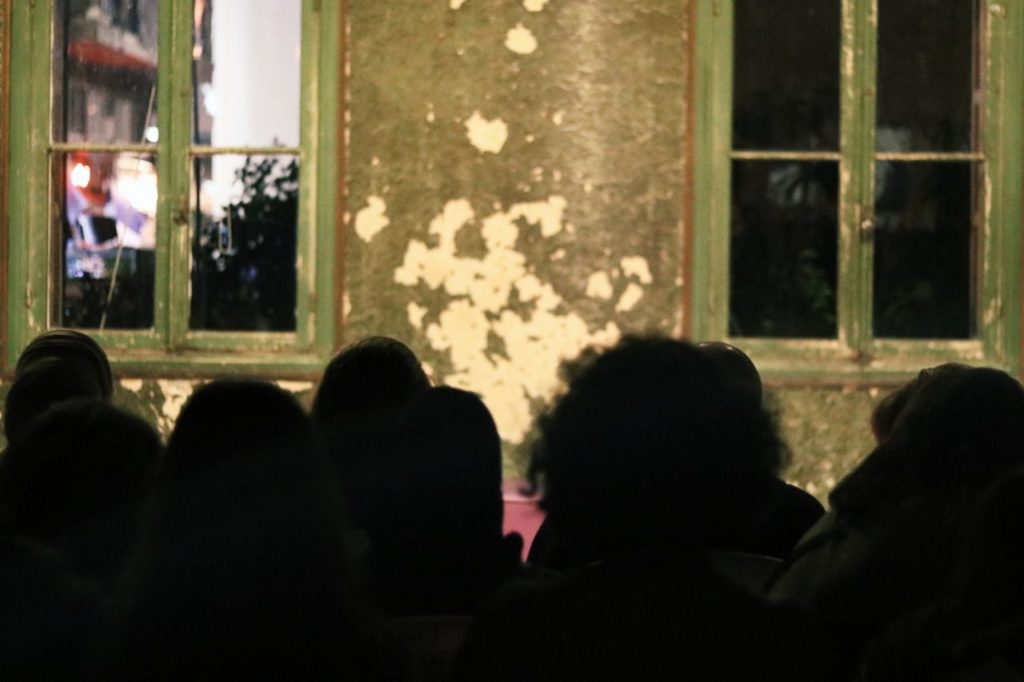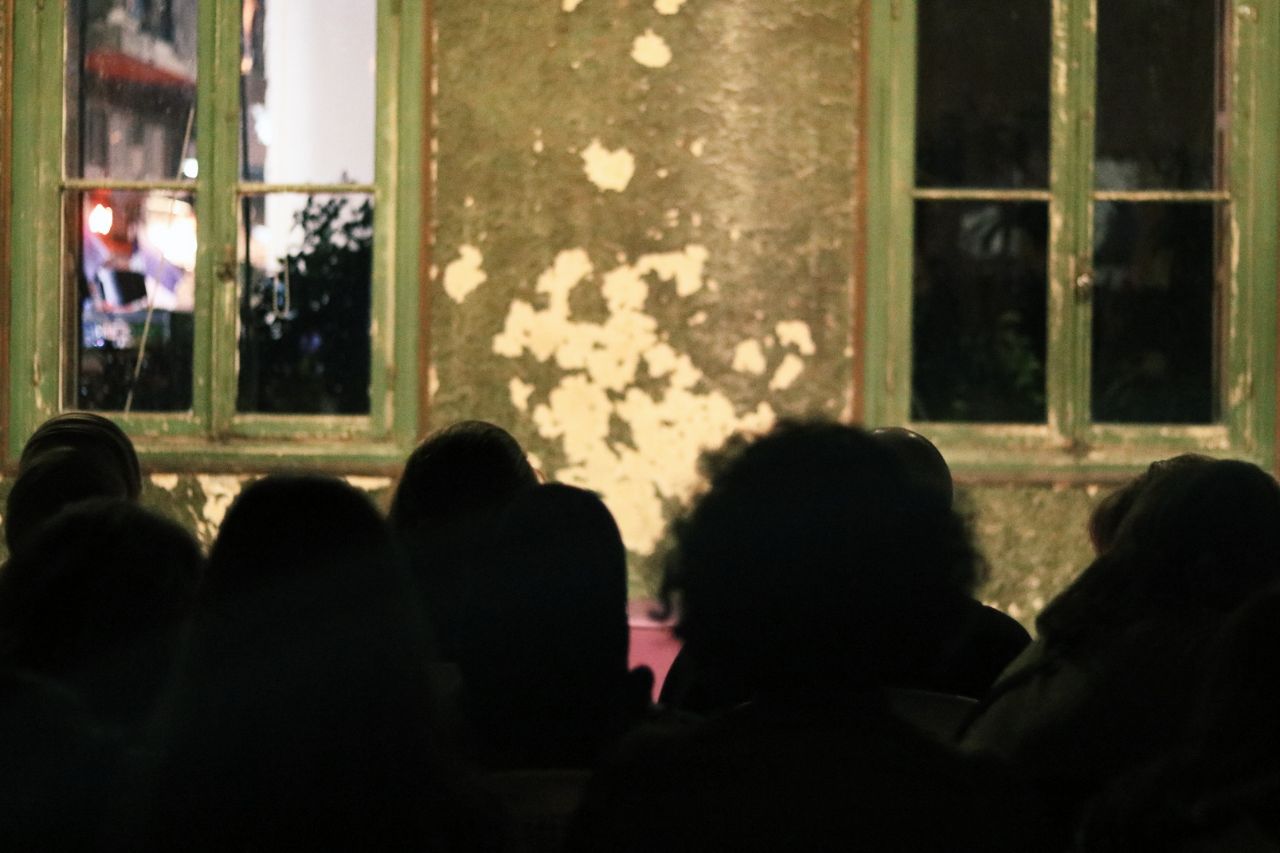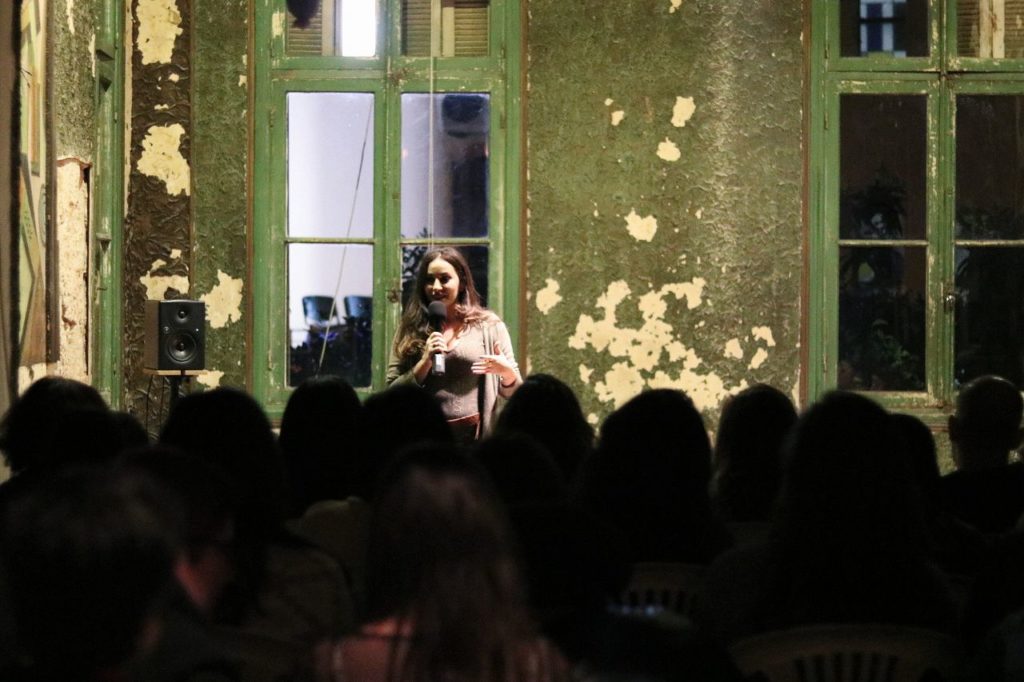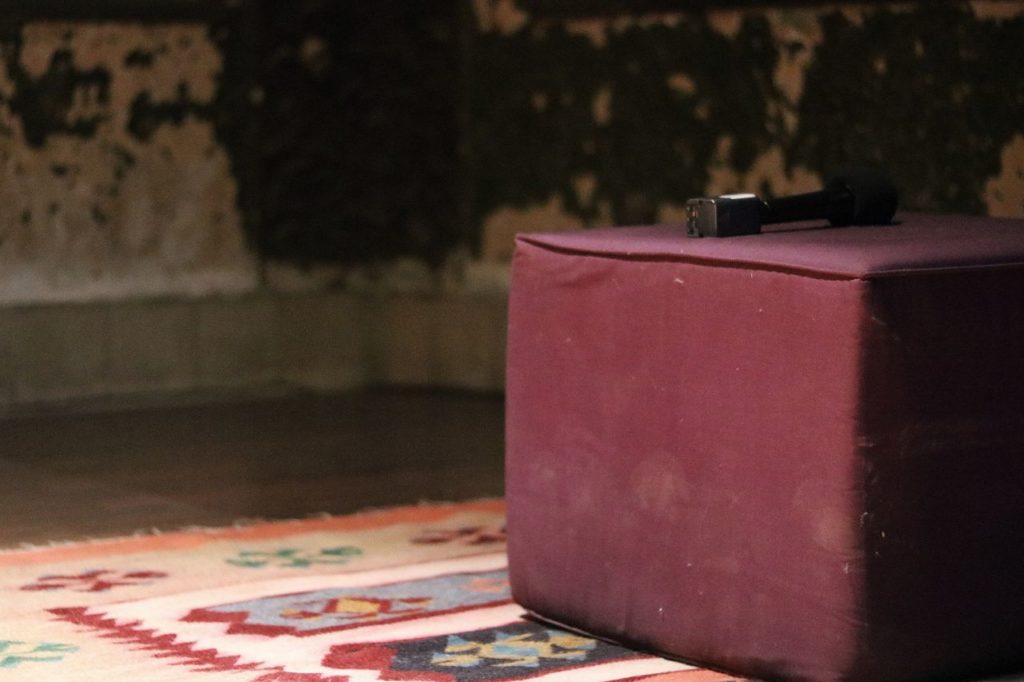id=”536″ id=”post-1330″ class=”wp-post-content-block ” itemscope itemtype=”http://schema.org/BlogPosting” itemprop=”blogPost”>

Stories from Lebanon: Women and Trans* reflect on struggles and successes
By Laudy Issa
Women and trans* individuals in Lebanon shared their life experiences at a storytelling night hosted by Hivos and Fe-Male as part of the 16 Days of Activism Against Gender-Based Violence campaign.
The “What’s Your Story?” event on December 1 provided a safe space for a diverse group of women from the North, South, and Beirut regions to reflect on their pasts, understand the complexities of being part of a minority group, and connect to others through shared struggles and successes.
“Get angry, utilise it in the right manner, and be loud,” said one journalist at the event organised by Hivos’ Women Empowered For Leadership (WE4L) program.
The set panellists of female and trans* community leaders and open mic audience performers shared stories, theatrical performances, and poetry on visibility, empowerment, gender and sex nonconformity, transformations, despair, and resilience.
Stories of Harassment: Victim Blaming and Legal Measures
Several of the spoken stories revolved around harassment in public spaces and within a working environment.
One panellist, an activist and researcher, discussed incidents where she was harassed by strangers while sleeping on airplanes. The activist protected herself with Aikido, a modern Japanese martial art that practitioners use to both defend themselves and prevent their attacker from sustaining injuries, but was frustrated with the lack of structures and measures available to prosecute harassers.
One of the two incidents reflected the necessity of women in leadership positions who can believe and understand the struggles of other women: a female hostess intervened after the panellist called out for help, immediately calming her and silencing the defence attempts of her harasser by indicating she could call security and escort him elsewhere.
“Why does this always happen to you?” the panellist quoted one of her friends after she shared the incident on Facebook, highlighting a prevalent mentality that blames women for the actions of men.
A journalist and media personality shared her stories of misogyny and harassment in the industry, including one where she was told she needed plastic surgery to “fix her nose” during a job and interview and another incident where she was groped in a meeting regarding a promotion.
“In that moment, you freeze,” she said. “As loud as I am, I was silent.”
A recent campaign by AFE showed that only 15 percent of companies in Lebanon have protective policies against sexual harassment in the workplace.
Stories of Awakening: New Identities and Empowerment
A local trans* journalist reflected on her life so far, from a difficult childhood to being introduced to similar individuals. Born with the idea that she’s different, the journalist was bullied by students for being “weird” and blamed by her family for all their struggles, which in turn took a toll on her mental health and school performance. University quickly shattered her expectations of a more tolerant environment.
It wasn’t until she started working that the journalist was introduced to a trans* individual who helped her understand her identity and realise the presence of others similar to her.
“Understanding isn’t the same as expressing,” said the journalist, finding an unsupportive LGBTQ+ community that criticises her for being “too feminine” to be gay and not feminine enough to be trans*.
The panellist also highlighted her hesitation to undergo a surgical or hormonal sex transition, considering that trans* individuals have little to no rights in the country and are often survivors of harassment and abuse by police and others for expressing their identities in public spaces.
“Hear, embrace, and give space to trans* people in your life,” the journalist asked the audience. “Be their angels before they become your angels.”
Two other speakers who discussed coming to terms with their personal identities also reenacted their feelings for the audience through an improvisational theatrical performance with their theatre group.
The first highlighted how women are objectified and pressured into roles and beliefs as young children, particularly the belief that their worth is related to their virginity through religious school lessons that compare women to “unwrapped lollipops,” “precious diamonds” to be preserved, or queens who “shouldn’t shake hands with commoners.” She also struggled with societal pressures to keep wearing hijab, but removed it after moving to Beirut from the North because she was no longer convinced it represented her.
The second speaker was pressured towards “feminine” actions and certain career paths because of her gender. The speaker’s parents decided her career for her and enrolled her in a university program without her consent, also cancelling a scholarship she had received. Slowly and over the years, the panellist grew more comfortable with her own identity and learned to say no.
Her story helped the audience recognise how women are often robbed of their agency, and how providing them with the space and support to reclaim that agency can build leaders who work towards positive societal change.
Stories of Love: Self-Love, Marriage, and Abuse
“Why did I accept being spoken to like that?” one speaker asked as she reflected on a verbally abusive relationship that ended with her friend helping pull her away from the two-year relationship after he threatened to slap her.
“I believed that I’m nothing,” she continued, eventually pinpointing how women in the country are taught to believe they are unworthy of love if they do not conform to traditional expectations.
The speaker would wed an older man after seven years of dating him, and terminate an abnormal pregnancy. She dealt with the difficulties that followed by herself, with her husband out of the country and her mother keeping away following the loss of her would-be grandchild.
The speaker’s isolation led her to realise that she was unhappy in her marriage. Aside from the patriarchal laws that dictate the personal affairs of women, the speaker faced backlash from her family when she decided to pursue a divorce. She persisted. Rather than accepting any love because she feels unworthy, she recognised her value beyond what society taught her.

Stories from the Crowd: Oppression, Education, and Fighting Back
Several members of the audience shared their own experiences in the safe space provided by WE4L, from poetry about the negative stereotypes that Arab women face around the world to empowering stories of women taking up more public space and standing up to cat-callers.
One speaker, a mother of three who was forced to give up her education to get married, shared the empowering story of her return to academia. She would go on to earn both her undergraduate’s degree and graduate’s degree.
“Twenty-eight years later, I went to university,” said the speaker, who also highlighted the difficulties of managing her role as a mother and studying. “I challenged myself, my husband, and society.”






